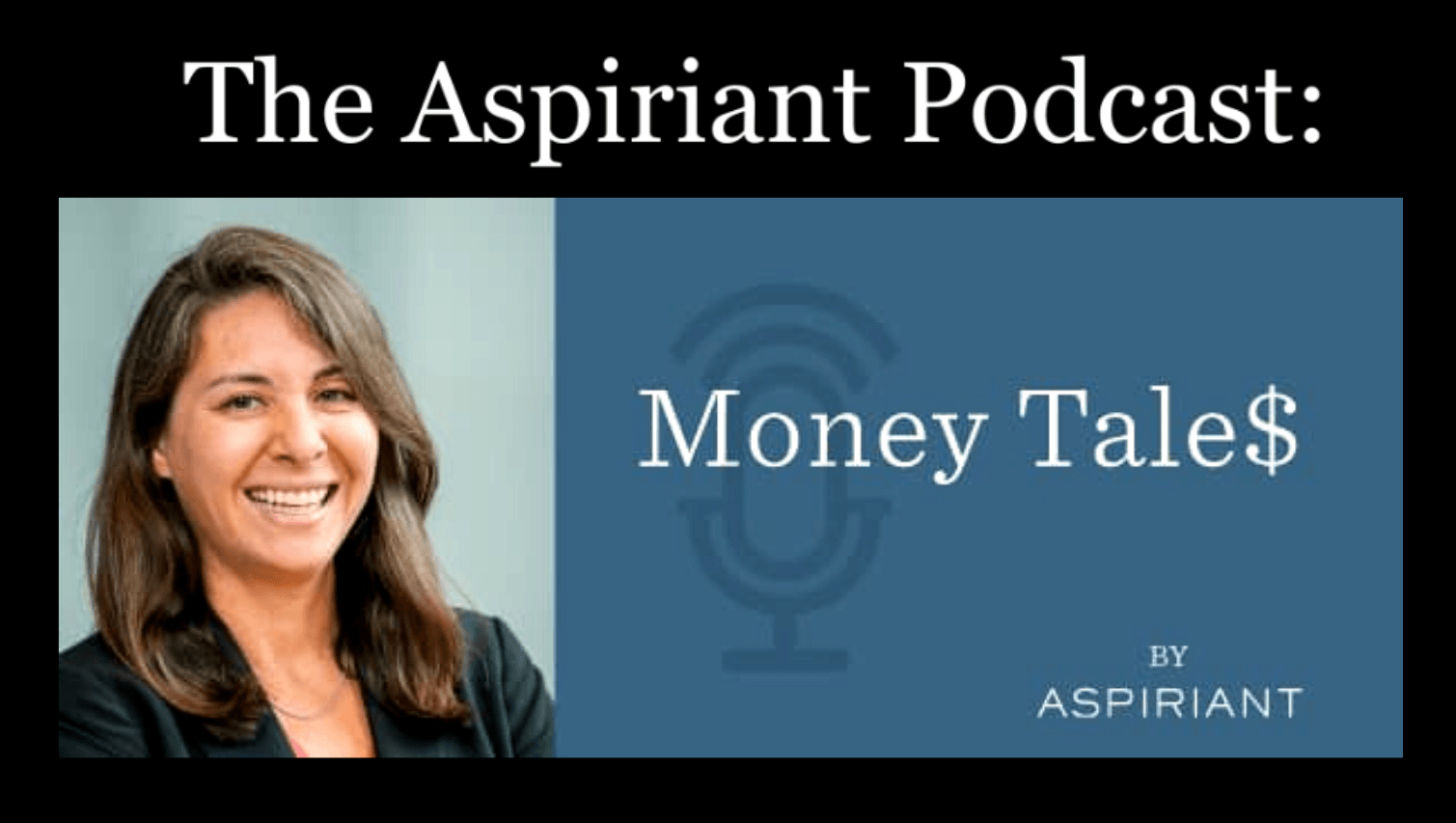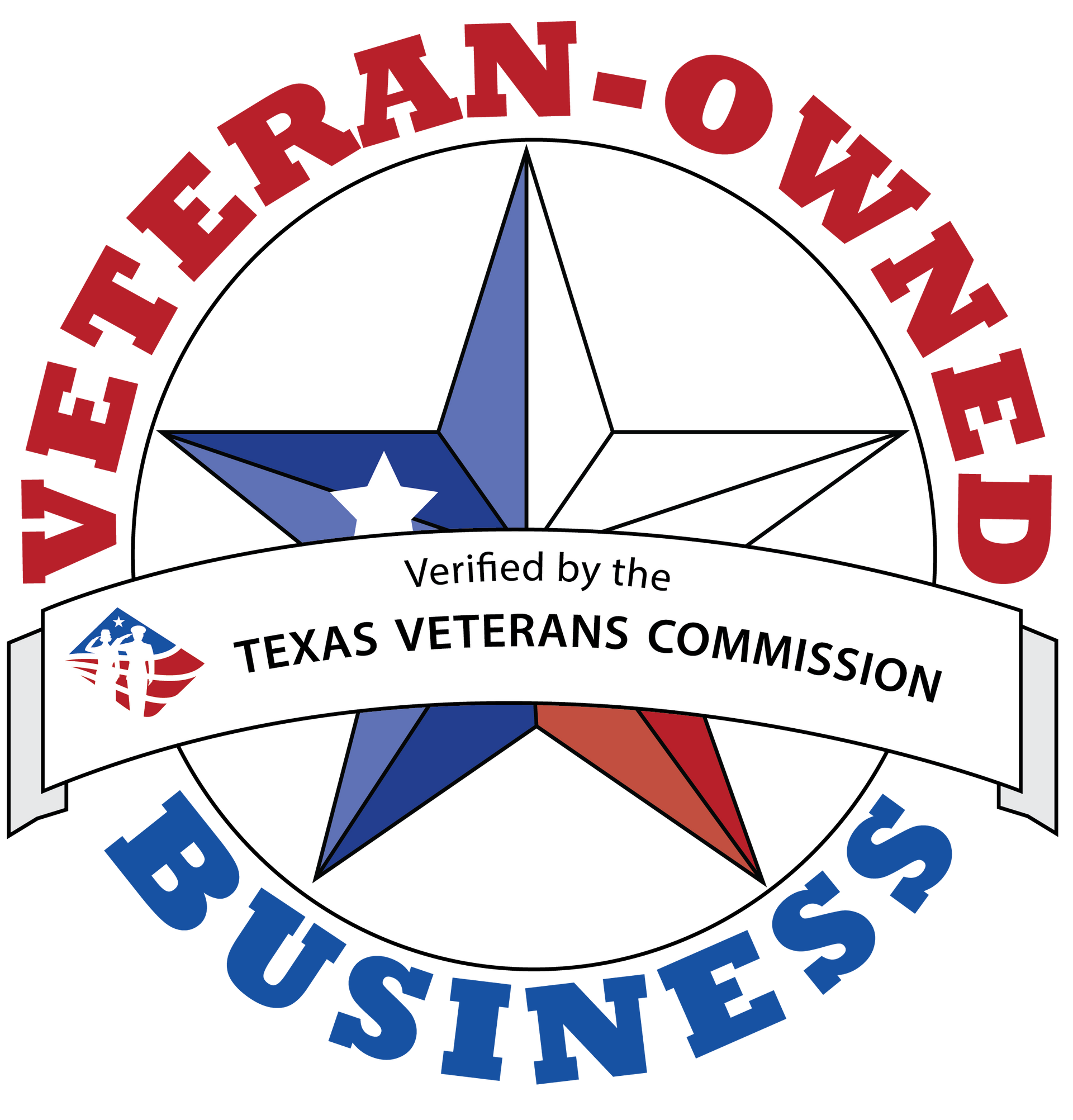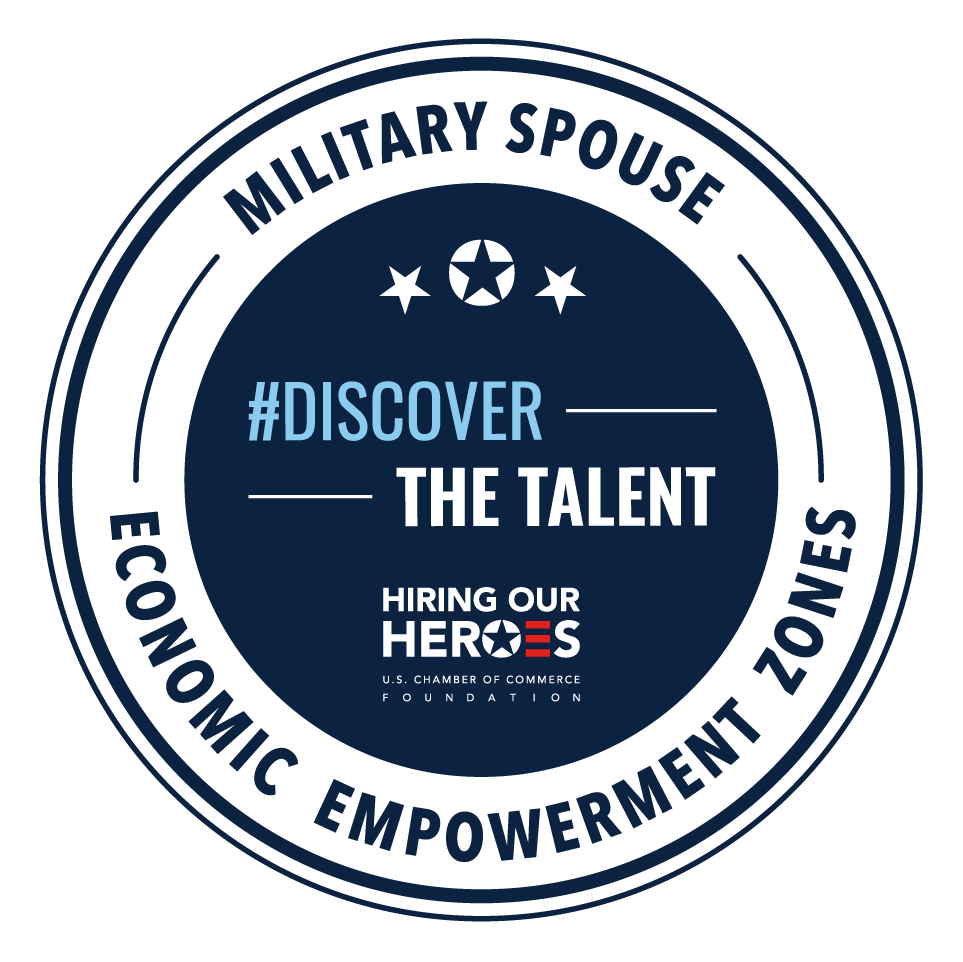MoneyTale$ Podcast: Money vs. Time vs. Energy, with Laura Renner
Laura was a guest on the MoneyTale$ Podcast!
MoneyTale$ is a podcast that dispells the myth that money is a taboo topic. The MoneyTale$' co-hosts, Sandi Bragar and Cammie Doder, interview leaders to demystify money. Their goal with the podcast is to help others learn the vocabulary and skills needed to understand, evaluate and financially plan for life!
Check out the MoneyTale$ website for Laura's and other episodes!

TRANSCRIPT:
In American society, money is a taboo topic. We're taught at a young age it's improper to talk about it, but we're also bombarded with messages about the power and importance of money in our everyday lives. And by not talking about it, we miss out on the skills and lessons we need – need to effectively understand and financially plan.
That changes today.
Welcome to
MoneyTales. Hosted by Sandi Bragar and Cammie Doder, MoneyTales brings more than 35 years of combined professional experience and personal finance to demystify money and demonstrate what it's like to speak openly about personal financial matters. Join us each episode as we interview modern-day movers and shakers about how many decisions intertwine with their daily lives. In order to give you better insight into productive financial conversations, subscribe today and register for our blog Fathom@asperient.com podcasts to increase your money mojo. And now here's Cammie and Sandi.
INTRODUCTION
Hi, this is Cammie. Laura Renner is our guest this week on MoneyTales. Laura is a United States Air Force Academy graduate with an MBA who found herself walking dogs and dog sitting to make ends meet as she launched her third and current business. While she enjoyed being with the dogs, she knew it wasn't prestigious work and felt a little bit ashamed because that's not something that you imagine an MBA doing. However, after talking about it with a friend, Laura realized that she was happy, and doing this temporary work allowed her to self-fund a business that she cared so much about. Laura is a member of the US. Air Force Reserve. She founded her business Freedom Makers Virtual Services, out of a passion to help small business owners and military families. As a small business owner herself, she understands the stress and challenges that come with being a business owner and the difficulties that military spouses have building and maintaining a career when they may be transferred at a moment's notice. Through Freedom Makers Virtual Services, Laura creates freedom for business owners and military spouses.
Hi, this is Sandi. Here are three key MoneyTales conversation topics Laura hits on in this conversation. First, how people tend to focus on the cost of things rather than on time and energy. Laura talks about the value of doing more of the things that give you energy and being willing to pay to outsource the things that take an equivalent amount of time and drain your energy. The net value creation can be much greater. Second, the importance of learning how to manage cash flow in a small business environment. And third, how understanding your values allows you to live those values. If you like this episode, be sure to share it with a friend and please subscribe to MoneyTales on your favorite podcasting platform. Now onto our conversation with Laura Renner.
CAMMIE: Hello MoneyTalk listeners. This is Cammie and I'm here with my cohost Sandi.
SANDI: Hi Cammie, it's great to be here today.
CAMMIE: I'm excited for this conversation and Sandi, I was reading the bio of our guests and noticed that she went to the same business school as my husband. They're separated by five years, and he was just at his reunion, just a great experience. He met amazing people, learned a ton. But in the context of this conversation, I was starting to think about business goal because my reunion was also recently. Here's an education that's kind of all about money... It's definitely a big investment of money. I was thinking about the money conversations in business school, which were about investments, and you would talk about salaries, but never really what the purpose of money was, Sandi!
SANDI: Oh, interesting. Were you aware of that at the time?
CAMMIE: I wasn't. I wish I was. Really? I think it would have helped. When we were talking about recruiting and what our intentions were, it was almost like you had to be talking about what was going to maximize the potential salary.
SANDI: I'm curious, Cammie. Were you taught how to negotiate for salaries at that time?
CAMMIE: There was a negotiations class that you took – one, but not much. I don't remember the recruiting center really helping you think through that at all. It was sort of like, if you get the offer, take it.
SANDI: Interesting.
CAMMIE: It is interesting.
SANDI: That is so interesting. I remember once getting a job offer that I really wanted. I had uprooted myself, moved to a new city, didn't know anybody, tried to get into a new profession. It didn't work, and I just desperately needed a job. So I was delighted to get the offer and I took it, and I left that job three years later, the person who ran to practice asked, are you a little surprised by why you got so many really high raises compared to your peers? And I said, oh, well, I didn't really realize that. And he said, well, yeah, because you didn't negotiate on your way in. You should always negotiate on your way in. That was a big learning for me. I was so naive and again, just so pleased to have a job. So I was always curious about business schools. There was a lot of preparation down there.
CAMMIE: Sandi, not in my experience, but I think you're shining a light on something that's really important, and maybe it's changing these days. Maybe through MoneyTales, it's changing.
SANDI: I hope so.
CAMMIE: Let me introduce our guest today. Welcome, Laura Renner. It's wonderful to have you with us on Money Tales.
LAURA: Thank you for having me. I'll add that in my one negotiations class, all I remember them saying is that because your salary at new jobs are based on your salary at your last job, by not negotiating that first salary, women generally lose out on a million dollars in salary over the lifetime. I hope that's changing, especially with a lot of state laws prohibiting asking what the previous salary was to help alleviate that gender pay gap. But that's the one thing I remember from the negotiations class I took.
SANDI: Well, that's a good lesson. Oh my goodness. A million dollars. That's a lot of money.
CAMMIE: And I don't want to rely on state laws. I want it changing through mindset and attitude, walking in and coaching.
SANDI: Laura, would you please introduce yourself and share two to three pivotal moments that really impacted you, influencing who you are today and what you're doing.
LAURA: My name is Laura. I'm the founder of Freedom Makers Virtual Services, a virtual assistance agency where we pair military spouses with small business owners to support them remotely. And I think that's a part of the pivotal moment of who I am because it's going back to I don't know about going back to salary, but just this whole idea of the underemployment levels in military spouses because of how frequently they move and so being able to provide flexible working opportunities for them, but meet a need for small business owners too. So it's just like a win-win in that regard. I grew up military. My dad was career Army. I was born on a military base, had my first passport at four months old, went straight to the Air Force Academy out of high school, so I stayed in the military. But I realized while I was at the Academy that I was more interested in business strategy versus national security. And so I left in my mid to late twenty s and went to business school right out of the Air Force. And it was during that time I graduated from business school literally the day before my 30th birthday.
And for whatever reason, that meant a lot to me, but now it's whatever. So I spent the better part of my 30s really taking time to discover who I am and what drives me and what is the purpose of money in my life and the kind of life I want to live, and things like that. That led to the third phase of my life, and that is around being an entrepreneur and being a leader and designing the life I want to live through my business, because my business and my life are kind of wanting the same.
CAMMIE: I'm curious, what did you do in the Air Force?
LAURA: I was a public affairs officer, so really the equivalent of public relations. And then I wasn't training to become a foreign area officer. They generally work at the Embassies, fostering military exchange programs, things like that.
CAMMIE: You're growing up in this transient family because you've moved in a lot of places. Tell us what were the conversations you all were having around money?
LAURA: One of the things too is my dad was a spender in the family and my mom was the saver. So it was more about that battle clash, if you will.
SANDI: How does that manifest itself Laura?
LAURA: It manifested a lot of fighting. My mom was also an immigrant and I remember her saying that my dad drank a lot of soda and she thought that every American drank a lot of soda and he's like a young private at this time, they could have been saving a lot of money not buying soda. And once she figured that out, she immediately prevented him from buying. I remember that story is a thing that manifested of pinching pennies where you need to type thing in ways that may or may not be fulfilling from a lifestyle standpoint. I mean, he switched to coffee. He was fine.
CAMMIE: As we know, coffee is not cheap.
LAURA: Well, back then, maybe, right? But often times people, when they're thinking about money, they feel like they have to suffer without really having some of the things they love. When you really maybe not all of it, but you can with some of it. And just figuring out, going back to what you were saying about if you know what the purpose of the money is in your life and you can prioritize and give yourself something that means something to you regardless of how much you're making or how much you have.
SANDI: Laura, what was that like for you as a child, seeing your parents argue about money?
LAURA: My brother and I, we both took away from responsibility in the sense of making sure we always had a cushion. And my mom was very debt averse. So my brother has that mentality. Today I'd say I'm more debt tolerant, but I feel comfortable with how I use debt. I personally think I'm responsible with how I use debt as a way to grow my business or things like that. But I think that's something that we took away from it. We watched, especially after my parents split our dad struggle. Granted, that was through the lens of our mother, but we watched him struggle financially, and we watched her make ends meet when he was making a lot more than her. Yet she seemed to make ends meet, and he always seemed to be broke, which also is a mentality thing too. And I think that's probably a big lesson I've learned, is whether or not you think you have money. There's a mentality around that in addition to reality, right? Absolutely.
CAMMIE: Can we drill into that? Tell us what that means to you.
LAURA: So I remember my dad, he acts like he doesn't have money. He's always like, I can't afford that, or I can't do that because I can't afford that. And one day I asked him how much he made, and I was blown away. I was like, Wait, you make that much and you think you don't have any money? Whereas my mom was uneducated retail worker making minimum wage or just above minimum wage. Yet somehow, we didn't have debt collectors coming to us. We didn't have late notice payments type thing. We never had that. So she somehow made it work. We certainly weren't living high on or whatever that phrase is, but she could make things happen for us when we really wanted it, and she somehow made that work. Whereas my dad's immediate mentality, anytime you ask me, I don't have any money, I can't afford. That's his default response to anything. You would think he wasn't making good money when he was working and he was making decent money.
SANDI: You're taking this all in. As young person, you decided to go to the Air Force Academy. Were you thinking about money for yourself at that point and bringing in this idea of cushion and making sure you had enough?
LAURA: I was thinking, too, about how people's relationship with money is also driven or bounded by fear. As I mentioned, my mom was an immigrant. We knew nothing about college. My dad hadn't gone to college. And what we saw was that anyone who went out of state from my high school seemed to come back after one year, and she thought it was because they couldn't afford out of state tuition. I didn't know any better. I didn't know maybe they were homesick or had trouble adjusting. Like, we just all thought it was because they didn't have the money. So that was a big reason why I went to the Academy, because that was a guaranteed four year scholarship to school. I would not have to worry about finding enough scholarships or grants for my 2nd, 3rd, 4th years of college, because that was the number one rule, is we could not take on student loan debt for college.
CAMMIE: That was the family mantra.
LAURA: Exactly. That was her number one rule. We could not take on student loan debt. So that was one of the big reasons I went to the academy.
SANDI: So did you feel squeezed by that?
LAURA: I can't say I enjoyed the academy while I was there. I'm certainly grateful now, and I appreciate it now. And of course, I look back on it with fond memories. I remember one semester I took something like eight classes, and it was just because they were all interesting to me. That's the only reason I took them. And I remember my mom saying, I'm so glad I'm not paying for your school, because I wouldn't have the heart to tell you you can't take all those classes because I can't afford it. So I was aware of the freedom it was offering me, and I majored in English. But it's an engineering school. I know how plane flies. I know how engines work. I know how satellites orbit. And I appreciate it knowing that, especially as a liberal arts major, as much as it sucks.
CAMMIE: Laura, we talked about business school, but let's talk about the Air Force Academy. Were they providing any financial literacy at school? And if so, what was it?
LAURA: Absolutely not. My freshman year, we made $60 a month. All of our books were paid for dorm, clothes, food. Everything was paid for, and we got a whopping $60 a month. I remember my senior year, our pay went up to I want to say 150 or 250 a month. And I remember my very first big purchase I ever made was a TV, and I was able to buy it with one paycheck, and I was like, oh, look at this. And we were able to get loans going into our junior year, if I remember correctly, that the payments weren't going to be due until we graduated. They used to call it a car loan because most cadets would use it to buy a car, but at that point, we could use it for anything. But I don't remember getting any kind of financial literacy education outside of just being paid.
SANDI: Did you take advantage of that loan?
LAURA: If I remember correctly, I gave it to my mom and she invested it, and I'm not sure what happened to it after that. You're stuck at first, mom.
SANDI: There's some wisdom in that. You're studying English, you're learning all sorts of engineering, and you become interested in business.
LAURA: I'm not sure how that happened. So there was one management class, and I remember learning about Southwest Airlines in that class. I remember learning the Air Force will take on different management techniques, and I remember learning about one of those, and I can't say it was so much business, but rather strategy. I was very interested in strategy and in the military, yes, you can have impact on strategy. Anyone can have impact on strategy in your office or on your team. But the young, immature me wanted strategy at the biggest level, and it takes 20 years to get up there in the military. But in business, depending on the size of the company, you can have impact on strategy from day one. And that's what was attractive to me. And I remember my one corporate job suggesting something to the president, and he agreed to it. I was blown away by that, a manager level. And the president took one of my ideas and ran with it. And I'm like, oh, wow, that's exactly what I was hoping for, having impact on strategy.
CAMMIE: I mean, this was your first job out of business school.
LAURA: Yes, except I started a business in between business school and that job.
CAMMIE: Okay, let's start there, because you mentioned something as you were introducing yourself about entrepreneurship being where you felt more in control of your life. And for those of us who see entrepreneurship as great risk, that's an interesting way of positioning things. So tell us what drew you to entrepreneurship.
LAURA: I will say one of the things, too, that I took from my mom was I became very averse to feeling trapped. And what I mean by that is, when I was in high school, she was in a pretty toxic work environment, and I remember asking her, Why doesn't she just leave? And she said, Because I need the health insurance for her line of work to leave, to go to another store. She'd have to start from the bottom without health insurance and stay long enough to be eligible for it. This is 20 years ago, and I remember feeling I never want to be in that situation where I'm in an environment that I don't want to be in, but I can't get out because of something I need, whether it's money or health insurance or something like that. So for me, I love to travel. And it seemed like every job I had, my leave balance was always bouncing off of zero, and I had to wait to get some leave and then I'd be gone again. And I just never had it built up to anything. When I finally figured out the kind of life I want to live and the purpose that I want for my business and my money, part of was being able to have that flexible life where I could travel and work at the same time.
So now I have seven employees and we have an unlimited PTO policy because I want to travel.
SANDI: You're living your values.
LAURA: Exactly. And it was funny. Our newest person, when I told her that, she looked at me like, what? And I thought she didn't like the policy. And I was trying to explain it, and she's like, It's just one of those things where it's like too good to be true. So then I explained like, this is a very important thing to me. That was a big thing for me, is defining the values of my company to be the values that I desired as an employee.
SANDI: And Laura, this all sounds so wise, especially for someone in her 30s that's really just getting started in her professional, non-military career life. How did these ideas come to you?
LAURA: It reminds me of two stories. Speaking of business school, there's this imagined or real pressure coming out of business school that it is about the high salary. What kind of life are you living for the money?
CAMMIE: The prestigious job.
LAURA: Exactly. The status, things like that. And I didn't really care for any of that. I remember telling someone, I'd rather be paid less but have more employees so I can travel more. And she said to me, you can have both. And I'm like, oh, good point. But I think for my size of business, I had employees sooner than most business owners would have at the size that I hired. Because I just recognized, too, that if I don't enjoy doing something or if I'm not good at it, I don't do it. So I needed to hire someone to do it in order to grow the business. And once I recognized that, I started to grow the business. And in fact, that person I hired, I was chatting with her this morning, and I'm like, that's amazing how you love to do the things that I don't enjoy doing. Like, it's such a good partnership in that regard. So I self-funded all my businesses. This is my third one, and while I was getting going, I was doing things like dog sitting, dog walking to make ends meet. And that is not something that is prestigious or has status, in my opinion, at the time, for a business school grad for an MBA.
And I remember saying that to a friend. I really enjoy it. I love being outside, I love playing with the dogs, especially in the beautiful Oakland hills or even the flatlands when you're walking out in the gorgeous sunshine. It's like, how do you not enjoy that? The exercise and the gorgeous California weather with dogs. But part of me felt a little bit ashamed because that's not something that you imagine an MBA doing. And I said that to a friend of mine who's a classmate. She was like, Are you happy? And I said, yes. She goes, Then what does it matter? Just that there just released all of it.
SANDI: Power of conversation.
LAURA:Yes, yes. When you're a business owner, you commune with other business owners and often times you commune with people who are at the same level as you as far as the phase of your business. And I one day decided to hire a house and I realized it was because I don't enjoy cleaning my house, so I procrastinate doing it, therefore I get nothing done. But if I hired a house cleaner, yes, it was an expense that maybe it would be a luxury or maybe I shouldn't justify, but I just was so much more productive by having a house cleaner. So trying to explain that to other business owners, to me it wasn't a luxury. To me it was a smart expense because it unlocked my productivity and just sort of exploring that. My whole business is around delegating and outsourcing. So really exploring that mentality around money versus time versus energy. And people tend to focus on the money side of things rather than the time or the energy because yes, me paying that house cleaner, I could have saved that money, but I actually made more in energy by doing that. That came about through conversations as well.
So I think going back to your original question, I do have lots of conversations with people. I tend to think out loud or process out loud. When I don't understand why I'm feeling the emotions I'm feeling or don't know what I think, I'll call up a friend and just start talking and then usually get some nuggets from them.
SANDI My heart is so warm right now. I'm so glad you're saying that. Laura, you just mentioned that you founded your first three businesses with cash. And earlier in the conversation you were talking about your comfort with debt and investing in your business. So can we talk a little bit about that? How did you get comfortable using leverage in your business? At some point, which wasn't at the very beginning.
LAURA: In my first business, I drained my savings and did do credit cards and then took a corporate job, paid all that off, rebuilt my savings, and then took off for another business. For me, I realized my business in some ways is not capital intensive, and in some ways it is, because this doesn't sound bad, but we're selling labor and a significant portion of our revenue instantly goes out the door to pay the wages of our workers. So in that regard, it is capital intensives, but there's not a big investment needed to do it. So there was a lot of time spent on managing cash flow, really, and figuring out how to manage cash flow in my business for that reason. And I remember telling someone, it sucks right now trying to figure it out, but it's going to be an amazing case study once I figure it out. I think a couple of things. One, cash flow management was a huge lesson to learn. And in fact, I ended up reading a book called Profit First. I am an avid fan of that. I tailor it to use my own way, but basically it's like you become your own bank a little bit.
Where I have, I think, seven bank accounts, and I just use them to compartmentalize our cash. I put money aside for taxes. I put money aside for profit that we turn into dividends or quarterly distributions. And one of the things I do is you get those annual dues for subscriptions or memberships or whatnot, and they come due, and that can be a big expense at one time. So I built a spreadsheet for all those expenses and then figured out how much do I need to put aside each month to be able to cover that expense when it comes to you. And I still use it to this day. And as we add new subscriptions or adding now, we are doing semi annual retreats. So that's a major expense to fly everyone and put them in hotels and whatnot. So I put money aside each month for that, and that's how I'm able to afford things without taking on too much debt. But my second point is, as small business owners, you get creative around how to fund things. As an example, when I was first getting started, a friend of mine wanted to start his web design company.
And he approached me and said, can I do your website for free? Simply so I have something in my portfolio. And I didn't ask him. That's important to me to say that I didn't ask him because I don't believe in asking for free work. But he offered it to me and I said sure, because we needed a website and he was willing to do it. We work together to this day, and of course we now pay him his rates, but we work together to this day. And that's the way that we were able to find out something that we couldn't afford at the time. But there was another one where I was trying to figure out how to get two different software to talk to each other, and there needed to be a third one in between, and I couldn't figure out how to get to work. So I reached out to one of our freedom makers who I knew was a software developer or a student to be one. I was like, this is too easy for you. This is below your level, but can you help me figure this out? She's like, Actually, I'm looking for a capstone project for my senior class.
Could I do this for you? I'm like, Well, I think it's too easy for you, but sure. And then they ended up building this whole big thing, and we ended up hiring them to finish it, to make it live. And that one thing completely catapulted our business. And we of course, paid them, but we came up with like a payment plan so that we could afford it. The reason I bring that up is because all that time we hadn't necessarily taken on debt. We had debt for other things, but we hadn't taken on debt. But seeing how that helped us grow, it made me open to take on debt to help us for the next level. And I know there's a risk with that, but it's a risk I was willing to take because I think it will give us another catapult.
CAMMIE: Really appreciate you highlighting the importance of cash flow management. We've had a number of guests talk about this and the Entrepreneurs Challenge. Thanks for sharing how you do it, because I think everybody does it their own way. But these are some really thoughtful, like the compartmental bank accounts, the managing when things are coming. So really, being mindful of all that, your business you talked about is outsourcing what you don't enjoy. And you do this in your life so that your energy is on things that drive value. But it's quite common for people to have trouble with that, that they feel, well, I should be sometimes it's a cost thing, I shouldn't spend the money. Sometimes it's a feeling that they should. How do you recommend to listeners to get over something that might be holding them back?
LAURA: I'll give two analogies. One is a mindset and one is how to get started. I always give an example of say you're thinking about cooking a meal, and let's say for this example, it takes 30 minutes to cook the meal and it takes 30 minutes to clean up. Some people enjoy both and some people enjoy neither. But for the most part, people enjoy one or the other.
But if you think about it, in this example, they both take 30 minutes. If there's one that you enjoy, then that might actually give you energy, but if there's one you don't like, it drains your energy. But yet they both have taken 30 minutes. So when you think about that mindset, there are. Some things that you do that might give you energy. And there are some things that you do that might drain your energy. The ones that drain your energy are the ones that you want to consider letting go of, because then you have more energy for the things that will presumably make you more money or bring in more revenue. So then how to do that? What I say is think about the biggest pebble in your shoe, the thing that annoys you the most, the thing that's always on your to do list but you never get to. That's probably the thing that drained your energy. So that's why it's always on the bottom of your list. But the problem though, is because it's on your list, it's taking up brain space. So simply being on the list is draining your energy. So start with that one. And even if it seems so big, break it down and let go of one piece of it.
I remember talking to someone who said he wanted to let go of his sales process. But the sales process was quite large. One phase was researching the people to reach out to. The next phase was reaching out to them. And then the third phase was following up with them. He was like, there's no way I could let go of all of that. I'm like, that's true, but you can let go of one piece of it. Like, let go of the research side or let go of the follow-up side. Just start with one piece. Look at that biggest pebble. And if it seems too big to let go, break it down into smaller pieces and let that go. And the funny thing is, once that's gone, you don't even notice that it's annoying anymore. But then the next pebble starts to annoy you. It almost becomes an addiction. Like, oh, what's the next thing I can get rid of?
SANDI: Now that you're running a successful business, how are you thinking about money in your personal life?
LAURA: I'm still thinking about the cushion. So that's where I think I'm at in my money journey. Even though I've been paying myself steadily for a while now, I still worry that one day there may not be enough in the business bank account to pay myself. And how do I have a cushion for that? What's my contingency plan for that? And sometimes I remind myself, hey, you have past history to be confident that you'll still be able to pay yourself. But I don't know. I remember for a while, I kept telling my team, I'm just waiting for the other shoe to drop. I'm just waiting for the other shoe to drop. And one of my employees said, you've been saying that for a long time, and it's never dropped. And I was like, oh my gosh, you're right. Internally as well. I have to remind myself, hey, yes, it's good to be prepared, but you don't have to always be afraid that the other shoe is going to drop or you don't have to always be waiting for it. And I think that's where I'm at with my personal money journey right now, around the self-funding debt.
I was able to pay back the income that I quote unquote, would have made if I had a job I haven't necessarily made back. However, I've made that back in happiness and fulfillment. So I think for me, when it comes to straight money, I think that's where I'm at in my journey is that it will always be there or for the long term will be there.
SANDI: Thanks for sharing. That such a human way. It really points out that we can be successful and there's still many things to think about and focus on and goals to achieve.
LAURA: It reminds me of what I said at the top of the hour with my dad always thinking he was broke and my mom making ends meet. Maybe I knew it was just my mindset, too.
CAMMIE: It's traveling back and forth, it sounds like. And you also talked about some people have relationship with money that could be bound in fear. So sounds like Laura, you're aware of that? I think that's part of it. Talking about it is a part of that step also.
LAURA: Yeah, especially for someone like me who processes out loud.
SANDI: Laura, what's your next money conversation going to be and who's it going to be with?
LAURA: It's probably going to be with my accountant around budgeting for my employees. We're growing and how do you prepare for that growth? But also as we grow bigger, how do I give them a budget and let them decide what they're going to do with their team? That's probably the next phase of our business. We're at that point well, we've been at that point where every time we're in new territory, I have to learn that new territory. And so that's where we're at is how do I give a budget to each of my teams and let them run with it?
CAMMIE: That's great. Next-level conversations. Laura, congratulations on everything you've done. We love that you are living your values with how you're running your business. It's really an important message for listeners to hear and we wish you great and continued success with freedom makers.
LAURA: Thank you very much.
CAMMIE: Thanks for joining us on MoneyTales.















